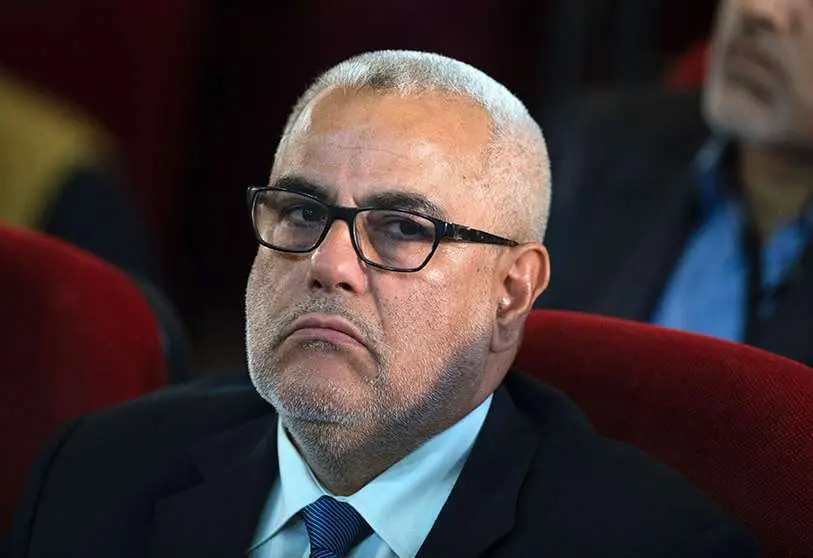Benkirán frena las exigencias de reformas en el PJD

The waters continue to run roughshod in Morocco's Justice and Development Party (PJD), the Islamist party that lost the last general elections to the National Rally of Independents (RNI), which under the leadership of Aziz Akhannouch now runs the government of the North African country.
The new secretary general of the PJD, Abdelilah Benkirane, who returned to the post after replacing the previous leader and former prime minister Saad Eddine El Othmani, who had to step down after the last heavy electoral defeat, has imposed, according to several analysts, an inflexible line within the party despite the internal voices that have recently called for internal reform.
Abdelilah Benkirane has thus blocked any current of reform within his party and affirmed the party's adherence to its strategic convictions and the Islamic roots of the party during the last meeting of the PJD's National Committee.
The head of the PJD indicated that the party will not change its strategic convictions, including the strong attachment "to the Islamic reference, with diligence, of course, and renewal", as reported by Al Arab. If you want to change it, look for someone else," Benkirane added in his speech at the first meeting of the party's National Committee after its extraordinary conference.

The Moroccan leader made controversial statements about homosexuals. "But we will not strive for homosexuals to publicly declare the disobedience of God, and whoever reads the Holy Koran will see the story of Lot, peace be upon him, repeated and clarified," adding: "What diligence, will we treat homosexuals like Europe? "The secretary general of the Justice and Development Party said that "homosexuals have always been in the world, the Islamic world and Morocco, but they have been hiding their kinship, and if they speak out, they will be responsible before the law," he was quoted as saying by Al Arab.
After the last serious electoral defeat on 8 September, several party activists demanded reforms within the party and the implementation of new theses regarding the party's relationship with society and the Moroccan state itself.
Among the most prominent voices calling for reform was Abdelali Hami El-Din, who stressed that abandoning the stage of "political Islam" in favour of the stage of "post-political Islam" remains an imperative for achieving integration, something that cannot be achieved with the postulates of the past generation, as reported by the Al Arab media. Hami El-Din stressed that cultural and psychological barriers have to be overcome with certain political and social groups that have other life choices in order not to alienate a section of society.
Benkirane does not now seem close to understanding the latest election results and a possible disconnection of the party with Moroccan social reality. "We did not understand the results of the recent elections.... Of course I am ready to accept the loss of my party, but I am not ready to accept the success of other parties," said the PJD secretary general.
Benkirane wondered: "How can a party go from 300,000 votes to 3 million votes overnight?" "How did they achieve that?" he asked. The PJD secretary general said he did not understand these results, referring to the setback suffered by Aziz Akhannouch's RNI.

The defeat in the elections of 8 September led to the resignation of Saad Eddine El Othmani as secretary general of the PJD and the departure of its leadership after a decade in power, which they reached with the favourable current of the Arab Spring and with postulates close to the Muslim Brotherhood, a radical Islamist organisation that is considered terrorist by various countries such as Egypt, as pointed out by different experts.
The last elections saw the departure of the Islamists from the government and the arrival of a new, more liberal government led by Aziz Akhannouch, which, for the moment, has got off to a good start in view of the latest positive political and economic data that Morocco is obtaining.
The loss of support from the traditional voters of Saad Eddine El Othmani's Islamist government had to do with decisions such as the establishment of Morocco's diplomatic ties with Israel in the wake of the Abraham Accords, the reinforcement of French in education and the difficult times experienced during the COVID-19 pandemic.
In this context, last October, following an extraordinary congress to choose a new secretary general, the charismatic Abdelilah Benkirane returned to the leadership of the PJD. The politician was elected by a majority of 81 per cent of the votes with the aim of reviving the party and joining forces. However, he has been criticised for the lack of democratic mechanisms to renew the party and has been accused of trying to agglutinate the party's power.
There has also been talk in the media of Benkirane's past differences with King Mohammed VI, which has distanced him from the forefront of the Moroccan political scene until now, in contrast to the Alawite monarch's good relationship with the current Prime Minister Aziz Akhannouch, which shows the current harmony between the monarchy and the government.








